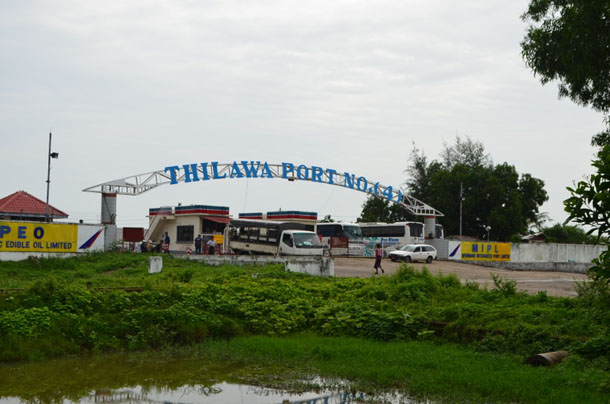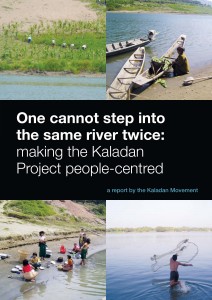Posts Tagged ‘Livelihood’ (15 found)
Will Japan Become a Model of Irresponsible Development in Burma?
 As the Thilawa Special Economic Zone Project (Thilawa SEZ) forges ahead, anger over the treatment of the local communities who are being displaced is growing. The Japan International Cooperation Agency (JICA), who just signed a deal that formalizes the financing of Thilawa SEZ is treating the communities currently living on the site area with undisguised disdain, drawing ire from local and international organizations, including on their home turf.
As the Thilawa Special Economic Zone Project (Thilawa SEZ) forges ahead, anger over the treatment of the local communities who are being displaced is growing. The Japan International Cooperation Agency (JICA), who just signed a deal that formalizes the financing of Thilawa SEZ is treating the communities currently living on the site area with undisguised disdain, drawing ire from local and international organizations, including on their home turf.
Covering around 2,400 hectares of land, the Thilawa SEZ is located 20km outside Rangoon and will include factories, a deep sea port, housing developments and other infrastructure for transport and communications. The project is a joint effort between Japan and Burma, with the Burma government and domestic businesses holding a 51% stake and the Japan government and Japanese businesses owning a 49% stake with funding being channelled through JICA as part of Japan’s overseas development assistance. Yet in order for these components to go ahead thousands of local people will be displaced. Phase One of the project, which has already started, has seen the relocation of 300 villagers yet the relocation site consists of inadequate housing, no alternative farmland, a lack of a clean water supply and very few livelihood opportunities, leaving people in debt just a few months after moving […]
• • •The Kaladan Project in India and Burma: Transparency and Local Benefits Essential, Say Activists
A new report by the Kaladan Movement raises community concerns about the lack of government transparency surrounding the implementation of the Kaladan Multi-Modal Transit Transport Project. The $214 million Kaladan Project – estimated to be fully operational in 2015 – will see the construction of a combined inland waterway and highway transportation system connecting Mizoram State in Northeast India with a Bay of Bengal deepsea port at Site-tway, Arakan State in western Burma […]
• • •One Cannot Step into the Same River Twice: Making the Kaladan Project People-Centred
 A new report from the Kaladan Movement titled One cannot step into the same river twice: making the Kaladan Project people-centred provides an update on the progress of the Kaladan Project, and assesses the potential Project-related benefits and negative impacts for people living in the project area […]
A new report from the Kaladan Movement titled One cannot step into the same river twice: making the Kaladan Project people-centred provides an update on the progress of the Kaladan Project, and assesses the potential Project-related benefits and negative impacts for people living in the project area […]
Statement by Local Residents at Ramree Island Regarding Shwe Gas Project, Deep Sea Port, and Oil and Gas Pipeline
Construction of Daewoo’s Shwe gas project, as well as CNPC’s Maday deep sea port and oil and gas pipeline have damaged our (local people’s) livelihoods and environment in Kyauk Phu Township since 2009. Additionally, there has been ongoing forcible land confiscation, providing no compensation or a limited amount of compensation for the confiscated rice farms and lands […]
• • •New Report Highlights Impacts of Military-led Development Strategies in Burma and Urges Reevaluation of Community-based Natural Resource Management
A group of organizations concerned about the ongoing rapid destruction of Burma’s natural environment has published a new report which challenges the direction Burma is taking with regard to national development and argues that alternative resource management systems should be considered.
• • •








 All posts
All posts